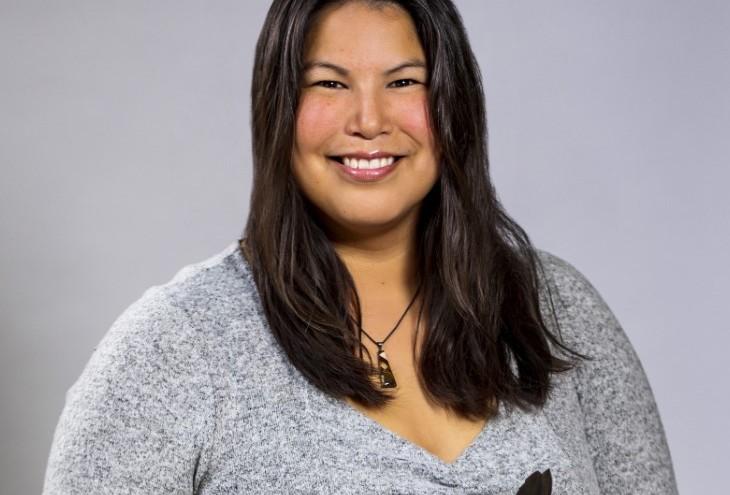Growing up on a farm in northern Alberta, Jessica Vandenberghe had plenty of time to investigate how things work. What she didn’t have was much exposure to different professions. She had been leaning toward a medical career until an engineer visited her grade 11 chemistry class. “I had not heard of engineering before then,” she recalls. “Working with inanimate objects rather than working on people appealed to me.”
Vandenberghe brought no preconceptions about engineering to her studies, and maybe more important, she was undaunted by being among the few women and Indigenous students in her classes. Adopted during the “Sixties Scoop” — a large-scale removal of Indigenous children and their subsequent adoption by predominantly white families in the 1960s — Vandenberghe was used to being different. “I was adopted into a German family,” she says. “It was pretty obvious I was visibly different from them. So going into engineering and being the only one wasn’t a new feeling for me. I had already built up the survival tactics unconsciously that helped me get through unfazed.”
On the farm Vandenberghe and her two brothers helped build and maintain various structures and machinery. Her father worked in construction and her mother believed in the importance of technology, teaching her children typing skills in between their chores. “She instilled in us this desire for continual learning,” says Vandenberghe. “Growing up in postwar Germany, my mother took the brave step of immigrating to Canada and becoming a farmer. She taught herself math, Spanish, and all sorts of things.”
As Vandenberghe pursued undergraduate and master’s degrees, she considered different branches of engineering. She also explored her identity through courses in theology, anthropology, and mythology. “I believe in opening as many doors as you can for yourself,” she says. “University really opened my eyes to diversity because it’s like a little international city.”
After working nearly 10 years as senior research engineer for an oil sands operator, securing several patents as she investigated safe and ethical ways to extract oil, Vandenberghe joined the Association of Professional Engineers and Geoscientists of Alberta. There she helped launch a national guideline for parental leave transitions, influenced legislation and regulation change, and co-developed a video game where kids could experience what it’s like to be an engineer. “I’ve been intentional about moving my career toward incorporating my passions,” Vandenberghe explains. “For a long time, that meant moving toward equity and inclusion but now also includes truth and reconciliation. I was an Indigenous community consultant for a number of years, working directly with First Nations to be that bridge to bring projects to fruition for their community.”
As a university student, Vandenberghe began reconnecting with her Dene Tha’ heritage, but it was an often-overwhelming process. She had been told her birth family was dead, a common experience during this era of Canada’s adoption system. Having children herself motivated Vandenberghe to explore further — a motivation that deepened as she worked with tribal knowledge keepers. “There’s so much that I walk away with, like the Plains Cree foundational teaching of wahkohtowin, the idea we’re all related, and the Seven Sacred Teachings,” says Vandenberghe. “How do we measure the success of engineering projects and incorporate the medicine wheel teaching of balance? They all resonate with me in a way that I already knew these things — it’s just now named.”
Working both with local communities and international organizations, Vandenberghe has leveraged her experience to influence significant systemic changes. Now as assistant dean at the University of Alberta, she integrates Indigenous teachings into programs, such as Engineering Connects, where students bring social analysis tools to community-driven projects. “I’m incredibly proud to be assistant dean because it’s a recognition that the perception of the profession and of how success is measured has to shift,” says Vandenberghe. “I tell anybody the capabilities of our Indigenous students are huge. It’s breaking down barriers so they know they have circles of support. Whatever your passion is, you can make that happen with an engineering career.”
Throughout her career, Vandenberghe has embraced new experiences. She encourages students to overcome isolation by getting involved in extracurriculars and making friends beyond their area of study. “Find the courage to form new relationships and be your authentic self,” Vandenberghe advises. “I was in denial of my heritage for a long time, but if you can be proud of who you are from the beginning, your pride and community will help you be resilient enough to be successful in this career.”













